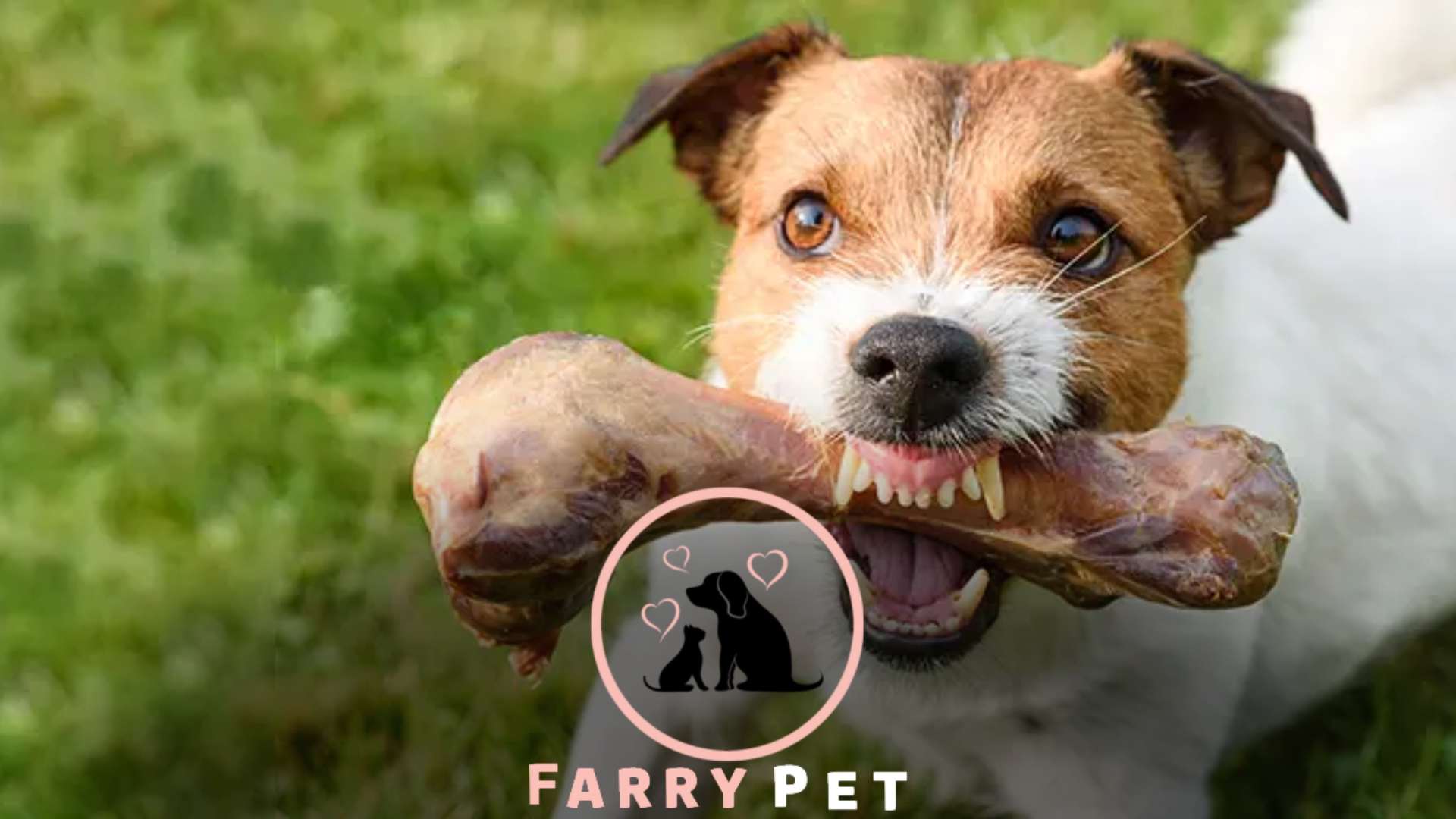
Raw meat does not make dogs aggressive. However, it is important to carefully handle and prepare raw meat to prevent contamination and potential health risks for dogs and humans.
Raw feeding, also known as a raw diet or a BARF (biologically appropriate raw food) diet, has gained popularity among dog owners who believe it provides health benefits similar to those of a dog’s natural diet.
While this diet may have advantages, it is crucial to consult with a veterinarian and ensure proper food safety practices are followed to protect the well-being of both dogs and their owners.
Educating oneself about nutrition and understanding the specific needs of individual dogs can help make informed decisions regarding their diet.
Does Raw Meat Affect Dog Behaviour?
Raw meat has been a topic of discussion regarding dog behavior. Many people believe that feeding dogs raw meat can make them aggressive. However, there is a lack of scientific evidence to support this claim.
It is important to understand that a dog’s behavior is influenced by various factors such as genetics, training, and socialization.
While diet plays a role in a dog’s overall health, it is unlikely that raw meat alone can significantly impact their behavior. That being said, it is always advisable to consult a veterinarian before significantly changing your dog’s diet.
Every dog is different, and their nutritional needs may vary. Providing a balanced and appropriate diet, whether it includes raw meat or not, is crucial for ensuring the well-being of your furry friend.
The Connection Between Raw Meat and Aggression in Dogs
Raw meat can impact a dog’s behavior due to its effect on their natural instincts. Dogs are inherently predatory animals, and a diet consisting of raw meat can trigger their hunting instincts, potentially leading to aggressive behavior.
This link between diet and behavior is vital for dog owners to understand.
Providing dogs with raw meat can engage their hunting drive and awaken their predatory behavior. It is important to note that not all dogs will display aggression due to consuming raw meat. However, monitoring canine behavior closely when introducing such a diet is recommended.
Proper training and socialization also play a crucial role in shaping a dog’s behavior. As responsible owners, we should strive to provide a balanced and appropriate diet that supports our pets’ overall health and well-being.
Understanding the potential impact of raw meat on a dog’s instincts and behavior is an essential aspect of responsible pet ownership.
If you’re concerned about your dog’s safety with unusual items, it’s essential to also understand if substances like Orbeez can be toxic to them.
Factors Influencing Dog Aggression Related to Raw Meat
Raw meat has been suggested as a possible factor influencing dog aggression. Biological factors, such as nutritional imbalances, can impact a dog’s temperament.
Changes in the dog’s microbiome due to raw meat consumption could also be linked to aggression levels.
It is important to consider these factors when assessing a dog’s behavior and aggression. Feeding raw meat to dogs may have potential implications for their overall aggression levels, but further research is needed to understand the relationship between raw meat and dog aggression fully.
Common Myths and Misconceptions About Raw Meat Diets and Aggression
Raw meat diets for dogs have long been associated with the misconception that they can cause aggression. However, scientific evidence and expert opinions have debunked this myth.
Studies indicate that aggression in dogs is more closely linked to genetics, socialization, and overall environment than their diet.
While it is important to handle raw meat safely to prevent bacterial contamination, feeding dogs a balanced raw diet can offer various health benefits. Raw diets consist of meats, bones, organs, and vegetables, providing nutrients and promoting dental health.
It’s crucial to consult with a veterinarian or a canine nutritionist to ensure the diet meets the dog’s nutritional needs.
As with any dietary changes, gradual transition and close monitoring are key to ensuring the dog’s well-being and maintaining a healthy and happy pet.
If you’ve recently switched your dog’s diet to chicken and rice, you might be wondering, “How long till a dog poops after chicken and rice?”
Research and Studies on Raw Meat and Dog Aggression
Numerous studies have explored the potential link between raw meat consumption and dog aggression. These studies provide an overview of the findings and insights gained on this subject.
Researchers have examined the effects of raw food on canine behavior, shedding light on any possible correlation with aggression.
While some studies suggest a connection between raw meat and aggressive behavior, others have found no significant association.
It is worth noting that each study has its limitations and variables, including sample size and breed diversity. Therefore, it is important to consider these factors when concluding.
Further research is needed to understand the relationship between raw meat and dog aggression fully. Until then, dog owners should consult with veterinarians before making any dietary changes to ensure the well-being of their pets.
Considerations for Feeding Raw Meat to Dogs
Feeding raw meat to dogs can have various effects, including potential aggression. To balance their nutritional needs while minimizing these risks, it is essential to consult with veterinarians and nutritionists. They can create tailored raw diets that address specific concerns and ensure your pet’s well-being.
By seeking professional guidance, you can provide a safe and balanced raw diet that supports your dog’s health and helps manage any potential aggressive behavior.
Considering your dog’s needs is crucial, as each animal may require a unique approach regarding their dietary preferences and potential sensitivities.
With expert advice, you can confidently navigate the world of raw feeding, ensuring your dog receives the nutrients they need without compromising their temperament.
Training and Behavior Management for Dogs on Raw Meat Diets
Raw meat diets for dogs have been discussed concerning their behavior. Training techniques can be used to address any aggression issues that may arise from this type of diet. Behavior modification strategies are helpful for dogs displaying aggression tendencies.
These strategies focus on positive reinforcement and reward-based training methods. Consistency and patience are key when implementing these techniques.
By providing proper training and behavior management, owners can help their dogs adjust to a raw meat diet and minimize potential aggression.
It is important to consult a professional dog trainer or behaviorist for personalized guidance in addressing aggression in dogs on raw meat diets.
Alternative Diets and Supplements for Dogs With Aggression Issues
Raw meat diets have been associated with aggression in dogs. However, some alternative diets and supplements can help manage this issue.
Owners can provide a more balanced and regulated approach to their dog’s nutrition by exploring different options, such as cooked or commercial diets.
Additionally, supplementing with calming ingredients like chamomile, lavender, or CBD oil may help mitigate aggression related to raw meat diets. These alternatives focus on providing the necessary nutrients while promoting a calmer and more stable temperament in dogs.
It is important to consult with a veterinarian before making any dietary changes, as they can provide guidance tailored specifically to the dog’s needs.
With the right diet and supplements, owners can help alleviate aggression issues in their furry friends.
Best Practices and Precautions for Raw Meat Diets and Dog Behavior
Raw meat diets for dogs have become increasingly popular, but concerns about aggression have arisen. It is important to approach these diets with caution and follow safety measures to ensure a balanced approach to diet and dog behavior.
When feeding raw meat to dogs, it is essential to handle it properly, ensuring it is fresh and from a reliable source.
Thoroughly cooking any meat served to humans is also crucial to prevent the risk of illness. Additionally, introducing raw meat gradually into a dog’s diet can help acclimate their digestive system.
Monitoring their behavior and seeking guidance from a veterinarian can provide further reassurance.
Overall, taking appropriate precautions and addressing any potential concerns can safely and effectively incorporate raw meat into a dog’s diet.
Frequently Asked Questions
Can Raw Food Increase Aggression in Dogs?
Raw food does not typically increase aggression in dogs.
Why Does My Dog Get Aggressive When He Eats Meat?
Dogs may become aggressive when eating meat due to various reasons. Some dogs may have food-guarding instincts, needing to protect their food from others. Others may have had negative experiences while eating meat, leading to defensive behavior.
Additionally, the high value of meat can trigger a more possessive reaction in dogs. It’s important to address this aggression to ensure the safety of both the dog and those around them.
Consulting a professional dog trainer or behaviorist can help identify the root cause of the aggression and provide guidance on managing and modifying the behavior.
Feeding the dog in a peaceful environment, practicing obedience training, and gradually desensitizing them to others’ presence during meal times can also help reduce aggression.
Does Raw Meat Affect Dogs?
Raw meat can affect dogs. It may contain harmful bacteria that can cause food poisoning. Dogs can also get parasites, such as tapeworms, from raw meat. It is important to handle and store raw meat properly to reduce the risk of contamination.
Cooking meat thoroughly kills these bacteria and parasites, making it safer for dogs to consume. Additionally, a balanced diet is crucial for a dog’s overall health. Feeding a raw meat diet can lead to nutrient imbalances and deficiencies if not properly formulated.
Therefore, consulting with a veterinarian is recommended before feeding raw meat to your dog. Remember, proper handling, storage, and cooking of meat are vital to keeping your dog healthy and preventing any potential risks of raw meat consumption.
What Foods Make Dogs Aggressive?
Certain foods can contribute to aggressive behavior in dogs. Foods high in protein, such as red meat, can trigger aggression. Additionally, foods containing caffeine or other stimulants can cause aggressive reactions. It is important to avoid feeding your dog foods that contain these ingredients.
Instead, focus on providing a well-balanced diet with ingredients specifically designed for dogs. A healthy diet can help your furry friend maintain a calm and balanced temperament. Always consult your veterinarian regarding your dog’s nutrition to ensure their well-being.
Does Feeding Raw Meat to Dogs Make Them Aggressive?
Feeding raw meat alone does not make dogs aggressive. Aggression can be due to various factors such as genetics, training, and socialization.
Conclusion: Does Raw Meat Make Dogs Aggressive!!
Raw meat has long been a topic of debate when it comes to the behavior of dogs. After delving into the subject, it is clear that there is no direct correlation between raw meat and aggression in dogs.
While it is true that some dogs may display aggressive behavior, it is important to consider other factors such as genetics, training, and socialization.
Raw meat, when handled and fed properly, can provide numerous health benefits for dogs, including improved digestion and increased energy levels. However, as with any dietary changes, it is crucial to consult a veterinarian to ensure the proper balance of nutrients.
Ultimately, responsible pet owners should focus on providing a well-rounded and balanced diet, incorporating raw and cooked elements, while emphasizing proper training and socialization to maintain a well-behaved and contented canine companion.






